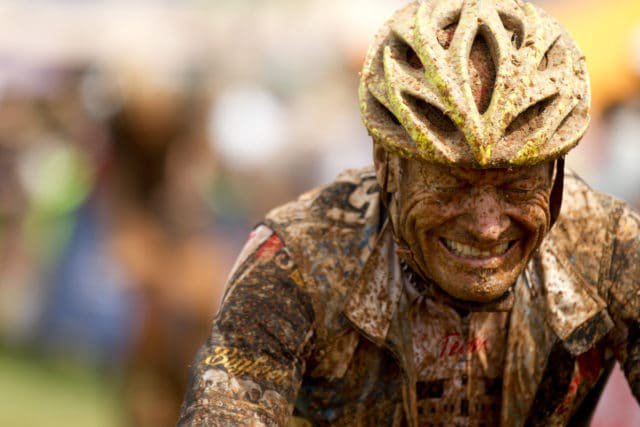8 Reasons Why The 2018 Absa Cape Epic Route is Tougher Than it Looks
I hear you, 658km and 13530m of vert doesn't quite sound like the toughest ABSA Cape Epic on paper, no...
I hear you, 658km and 13530m of vert doesn’t quite sound like the toughest ABSA Cape Epic on paper, no… – By Aaron Borrill, Online Editor

At first glance the route for the 2018 ABSA Cape Epic seems easier than in past years. For 2018 the route includes just over 13500m of climbing which, when converted into metres per kilometre (m/km) over the entire distance, amounts to a relatively low 20.5m/km – a far cry from the last two editions that worked out at 22.3 (2016) and 21.4 (2017).
But the Epic veterans will tell you that when it comes to the Epic, distance and vert are not as critical as the terrain riders will face. Sand, rocks, thorns, loose gravel, drought-induced washed-out corners are the real challenges. Here are 8 reasons you should be concerned…
1. A technical prologue.
Ah yes, Table Mountain. It’s a stunning backdrop no doubt but don’t let its beauty bewilder you… The riding here is some of the most technical around, not to mention the gradients that can kick up to 40% in places. Many riders were caught off guard two years ago barelling down the notorious Plum Pudding descent like headless chickens. Needless to say, many collar bones were sacrificed and egos dented. No manicured free kilometres here. Tip: go do some skills clinics.
2. Four consecutive 100+km stages.
It reads as follows: 110km, 110km, 122km, 111km. Crikey! That’s like doing a Cape Town Cycle Tour every day. For four days. On gravel… Think about that for a moment. Most of the riders will take over 8 hours to finish each of these days.
3. Rocks and sand and thorns. And sand.
It’s not really the rocks and thorns that you should worry about but rather the sand. This is the Epic after all and its ‘Untamed’ catch phrase holds true when it comes to solids. It’s the sand you need to watch out for. Having ridden the 2016 edition which traversed a similar trajectory around the Cape, the sand was unimaginable – thick and deep, it required a deft technique to sail over it like concrete. Long days in the saddle are a reality.
4. A 39km mid-week time-trial.
A mere 39km may sound a little innocuous but after four consecutive 100+km days this is not going to be easy. Particularly since it boasts the most climbing per kilometre of all the stages – 36.6m/km! It’s going to hurt and for the back markers the maximum stage time will be around 4.5 hours – pretty tight when you riding it on exhausted legs.
5. Will the real Queen stage please stand up.
There are two Queen stages in next year’s race. Stage 2 is the pseudo-Queen stage because of the unrelenting nature of the route profile. It doesn’t let up for one moment and this might see the most DNFs of the race. The advertised Queen stage, according to the organisers, is Stage 4 but most of it’s elevation is up the smooth tarmac of Bainskloof Pass.
Which is the real Queen stage? We think it’s Stage 2.
6. Demanding descents.
With a severe drought and dry conditions wreaking havoc with the Cape topography, you can expect loose surfaces and rocks to be a reality. Don’t think for a moment the surface beneath you is stable – concentration, a strong core, mental and physical fitness are just a few of the attributes that might help you get through unscathed, especially when fatigue kicks in. Surviving here comes down to superior skills. Again, go book that skills clinic.
7. The hidden elements.
This year we’re suffering from a severe drought, next year it could be a deluge. That is the reality of the Western Cape and its mercurial climate. One thing is for sure – there will be heat and wind. We’re also due for another wet Epic stage. Will we see a repeat of stage 2 of 2014’s race? It won’t be pretty.
8. A 2000m final stage.
What!? It’s been somewhat of a tradition for the final stage to be a little easier in terms of vert – not next year I’m afraid. The final stage has second most climbing per kilometre of the race, 28m/km. Advice: get a ‘Shut Up Legs’ sticker for your top tube.
———————————————————————————————————–
Aaron Borrill is Bicycling’s Online Editor. He’s participated in both the 2016 and 2017 Absa Cape Epic.

